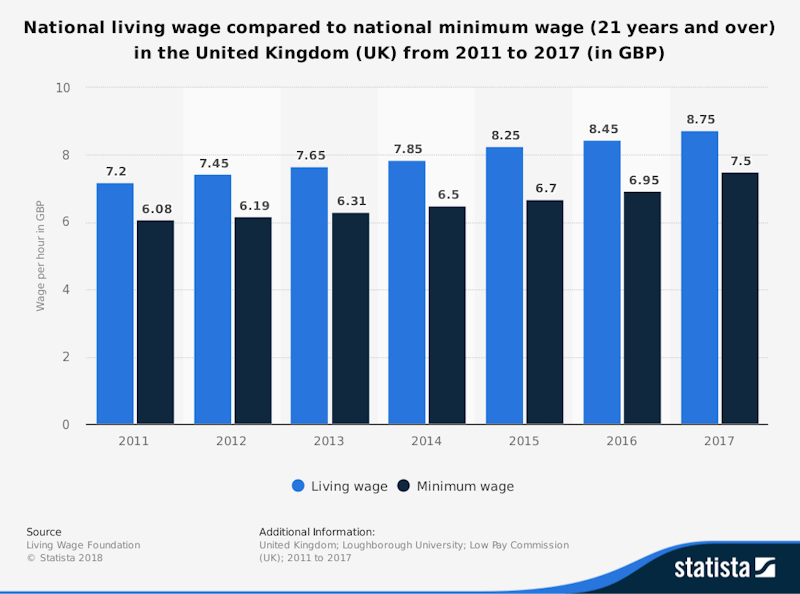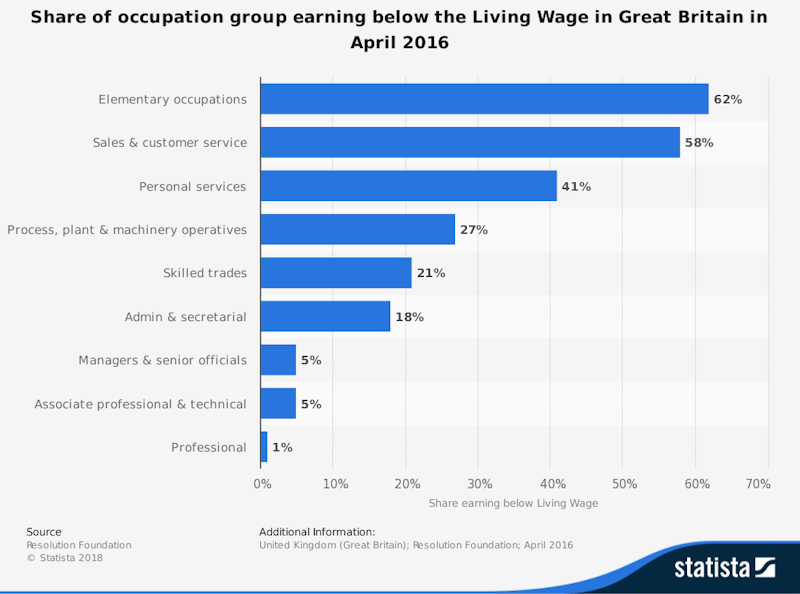Study Notes
Minimum Wage - Evaluation Phrases in Action
- Level:
- AS, A-Level, IB
- Board:
- AQA, Edexcel, OCR, IB, Eduqas, WJEC
Last updated 17 Jan 2019
Here are some examples of evaluation approaches that might be used in this question. “Evaluate the likely impact of an increase in the UK national minimum wage.” In the exam itself under timed conditions, building and developing two evaluation arguments is usually fine to reach top level evaluation and therefore get strong marks.

Relaxing the ceteris paribus assumption
Most students in their analysis will assume that a higher minimum wage will increase unit labour costs and therefore cause a fall in the operating profits of businesses directly affected by the minimum wage. But this assumes that labour productivity is unaffected. One effect of paying workers a higher hourly wage could be to improve their morale and cause a rise in productivity. Firms required to pay the minimum wage might decide that investment in training to lift the human capital of their employees will pay dividends in the long run.
Challenge the assumptions of a model (e.g. rational agents, behavioural theories of the firm)
Are all firms profit maximisers? An increase in the minimum wage which increases marginal and average cost could lead to them passing on extra costs to consumers in the form of higher retail prices. But if firms are more concerned about growing and protecting their market share, or perhaps adopting satisficing as a key aim, then their reaction to a rise in the minimum wage might be different.
In theory but in practice - what is the theoretical idea but does reality differ from the textbook?
In theory, a rise in the minimum wage might lead to some job losses. But in practice, if the demand for certain occupations is wage inelastic, then a higher pay floor will increase total earnings for workers affected and this will increase their real incomes thereby causing an increase in consumer spending.
Judge an issue on a case by case basis - often, the outcome in one market will differ from another
A rise in the minimum wage will not have a uniform effect across all jobs and industries. Some businesses might be more affected than others, for example sectors where there are concentrated clusters of relatively low-paid work such as caring, catering, farming and retail industries. In some occupations there is more scope for capital to replace labour if unit labour costs make a business significantly less profitable.
Disaggregate don't generalise - avoid sweeping generalisations, dig beneath the data
Try to be specific in your evaluation, e.g. consider one industry in particular (e.g. farming). If you are writing a longer answer to a data response question, go back to the extracts, tables and charts and find some relevant evidence both to support your evaluation and also to score application marks.
Most problems are multi causal and require a range of interventions
Why is a higher minimum wage being introduced? What market failures or other aims of government policy is it being designed to address? Could these aims be addressed with other interventions than a minimum wage?
The extent to which this occurs depends on at least two factors
A staple part of evaluation is to refer to the importance of elasticity of demand and supply - in this case, consider the likely wage elasticity of demand for labour (i.e. will employers cut back on jobs, hours or perhaps both) and also wage elasticity of labour supply (i.e. will a higher minimum wage prompt a significant increase in the number of people willing and able to work in a given industry?)
Draw on different schools of thought e.g free market versus state interventionist approach
Free marker economists would - by and large -be critical of imposing and increasing a minimum wage. Keynesian economists might counter by arguing that higher pay is both equitable and also increases the real disposable income of people who tend to have a high marginal propensity to consumer.
Always consider unintended consequences of interventions
Any intervention always has at least one unintended consequences - not all of them are negative!
Come to a reasoned final conclusion drawing (if you can) on a salient piece of real world evidence
Some articles:
Guardian 2018: One in five young people paid less than minimum wage

You might also like
Wage Differentials (Labour Markets)
Study Notes
Tax credits explained
24th June 2015

Teaching Labour Market Economics at A Level - Course Resource Pack
27th January 2016

Over-educated grads are bad news for economic theory!
27th September 2016

Driverless Lorries and the Luddite Tendency
30th August 2017

Does a higher minimum wage necessarily cost jobs?
15th January 2020

TUC launch campaign for £15 per hour national minimum wage
24th August 2022